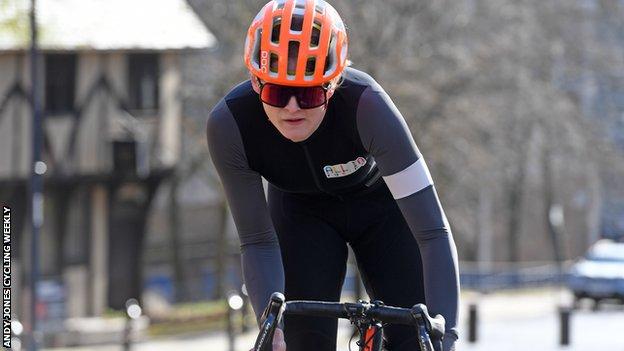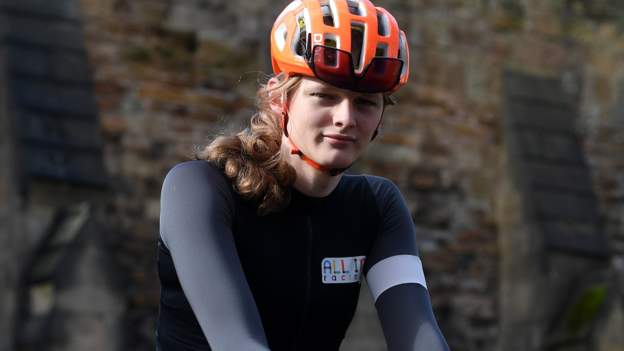
Cycling’s world governing body has the power to prevent transgender cyclist Emily Bridges from competing in women’s events, even if she meets their eligibility criteria.
UCI regulations require riders to have had testosterone levels below five nanomoles per litre for a 12-month period prior to competition.
However, those same regulations state that the UCI must establish conditions that “protect health and safety” and “guarantee fair and meaningful competition that displays and rewards the fundamental values and meaning of the sport”.
It is understood that senior figures in cycling believe these discretions are relevant in 21-year-old Bridges’ case.
The UCI regulations go on to say it wants athletes to be “incentivised to make the huge commitments required to excel in the sport” and “does not want to risk discouraging those”.
Meanwhile, British Cycling performance director Stephen Park believes the inclusion of transgender athletes is currently the “single biggest issue for Olympic sport”.
“It’s important to have the discussion and to understand the challenges sport faces,” he said.
Bridges had been scheduled to take part in the National Omnium Championships in Derby on Saturday – her first women’s event.
However, British Cycling said on Wednesday it had been informed by the UCI that “under their current guidelines, Emily is not eligible to participate”.
The UCI told British Cycling that because international ranking points are allocated at national championship events, Bridges’ participation could only be allowed once her eligibility to race in international competitions is confirmed. That process is currently ongoing.
But on Friday, Bridges – who began hormone therapy last year as part of her gender dysphoria treatment – said she had received “little clarity” around the finding of her ineligibility.
BBC Sport understands that prior to her being ruled out of Saturday’s championships, discussions were taking place among British riders about taking action against Bridges’ inclusion, but they feared voicing their opinions would be interpreted as transphobic.
It is also understood that safeguarding officers from both British Cycling and Welsh Cycling are in regular contact with Bridges.
Despite her absence, the only form of protest in Derby against Bridges’ once potential inclusion were three banners displaying the words ‘save women’s sport’ held up during the women’s races.
Professional women’s cycling union the Cyclists’ Alliance (TCA) said both British Cycling and the UCI have “demonstrated unfairness by not adhering to their own eligibility criteria” and called for “transparent clarification” on the decision to bar Bridges from competing in Derby.
Earlier in the week, UCI president David Lappartient told BBC Sport the rules regarding permitted testosterone levels in transgender athletes is “probably not enough”.
TCA said it agreed with Lappartient that the “existing UCI transgender guidelines are insufficient and need to be addressed”.
Bridges previously set a national junior men’s record over 25 miles and was selected to join British Cycling’s senior academy in 2019.
She first came out as transgender in an interview with Sky Sports in October 2020, and has spoken about wanting to change the culture and representation in elite cycling.
While having hormone therapy, Bridges continued to compete in men’s races.
In May 2021, she finished 43rd out of 45 riders in the elite men’s criterium at the Loughborough Cycling Festival and in September she was second to last in the Welsh National Championship road race, a 12km lap behind the winner. In February, Bridges won a men’s points race at the British Universities Championships in Glasgow – her final men’s race.
“No-one should have to choose between being who they are and participating in the sport that they love,” she said.
“I am an athlete and I just want to race competitively again. I hope that they will reconsider their decision in line with the regulations.”
